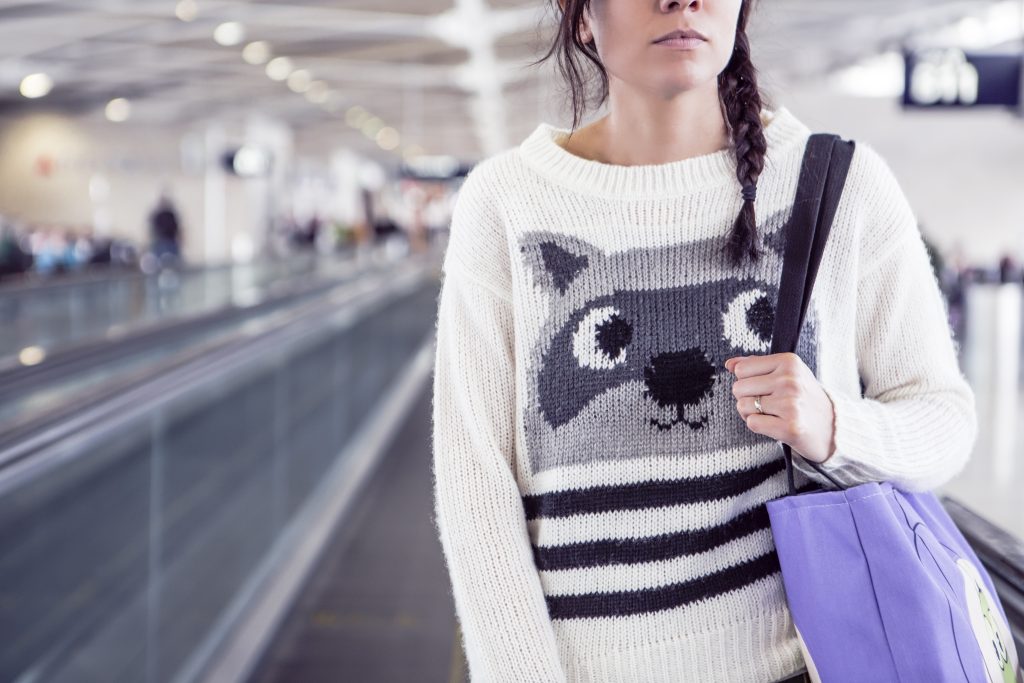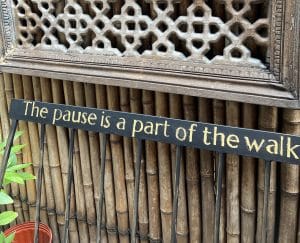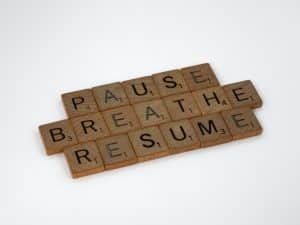
Do you know which Major League Baseball player holds the record for most World Series rings? (Yogi Berra) How about who designed the dress Halle Berry was wearing the night she became the first African American to win a Best Actress Oscar? (Elie Saab) The Pope’s birthday? (December 17) The average daily October high temperature in Kuala Lumpur? (88⁰F) Do I know all this because I’m brilliant at remembering random facts? Sadly, no, although you kinda do want me on your team on trivia night. All this information is available to me, and you, at all times. We carry around with us little devices that hold constantly updated versions of all the knowledge (and opinions, and other noise) of the human universe within them. Even more, they’re so easy to use that we can access the pieces of information we’re looking for in a split second, if we know how to ask for it. Of course, we also find lots of information we aren’t looking for. Often, however, it’s tough to tell the difference between the two…
Not being able to decipher between what you need and what you don’t need in a world of abundant information can make decisions pretty tough. First, our options seem endless. Second, thanks to the brilliant gift-meets-curse of social media, we also know nearly everyone else’s options, as well as their decisions. In theory, this should make choices like where to eat dinner tonight or which movie to see on Saturday a bit easier, if we’re reading reviews and learning from others’ regrets. Additionally, these decisions are fairly minor in nature and we know the stakes are low. So then why do we still get stuck on them?
Any decision, whether it’s about which restaurant to choose, which business schools to apply to, which global study module to bid on, or which internship opportunities to pursue, is made more difficult as your perceived number of options increase. We’re all familiar with this sense of “analysis paralysis.” However, they are also complicated by how much you know about each option. Seeing pictures, live detailed updates, and most of all, becoming aware in real time of other people making the same choices you are struggling with are likely to influence, and complicate, your own choices. We are always confronted with alternate paths to consider, which on a large scale – those big “this is your future” decisions – is both exhilarating and terrifying.
A lot of smart people, including researchers like Brené Brown and mindfulness and meditation experts like Tara Brach, have talked about FOMO (fear of missing out), and the dilemma of constantly facing dilemmas. We can’t escape from self-doubt when we’re making big, scary decisions that we feel are shaping our lives (which doesn’t always turn out to be true, but still…scary). FOMO is rooted in self-doubt, fear of the unknown and fear of failure. Brach says that “we have to be willing to feel the fear but not be driven by it.” To do this, we need to find ways to manage that fear. Developing even a short but regular mindfulness practice where you spend a few minutes a day tuning in to your breath, your body and your self can help you do that by minimizing the external and connecting you to your internal clarity. (It’s in there! I promise.)
Remember that old saying about what you’d do if all your friends jumped off a bridge? There’s wisdom beneath all the dust on that thing. You are in this life to be and do and achieve a special combination of things – large and small – that no one else will. At a certain point, we have to come to terms with the fact that people we admire are going to have and make different choices than we will. They need to. They are not on your journey, and you are not on theirs. To make the choices that are right for you, you have to quiet your mind, and tune into what your intuition, your “gut,” is trying to tell you. If you’re turning outward and seeking external validation for your choices, you won’t be happy for long. There are plenty of cranky people out there who are ready to throw doubt at you, probably because they haven’t tuned in to their own needs and gifts yet. By now, you know right from wrong, and you know what makes your heart beat faster versus what makes your stomach sink. Close your eyes, find your breath, and listen to yourself. As a life lesson from the guru of Pooh, “You’re braver than you believe, stronger than you seem, and smarter than you think” (A.A. Milne). You are not missing a single thing.
Photo credit: Ryan McGuire, Bell Designs/Gratisography




7 thoughts on “Say no to FOMO”
Great advice on how to deal with FOMO
Thanks, Tunde!
Love what you are articulating here, but wonder at what age is important to develop this type of mindfulness., I’m sure tweaking it and refining it is a lifelong journey, but at what age do you people need to learn to listen to their inner voice?
Great question, Kendra! You know I am going to say it’s never too early. 😉 I actually think kids are naturally more “mindful” in that they are totally engaged with the present moment, and what is right in front of them. We learn as we age to plan, worry, hypothesize, and live more in the potential than the actual. Of course, kids’ version of being present means letting both the positive and negative overtake them in the moment. Most of them do not have the capacity for perspective that mindfulness can help us cultivate as adults, teaching us that we experience our emotions, but they are not who we are. But, teaching kids to find their breath will engage their parasympathetic nervous system, and help them to calm themselves in the midst of emotion. So while it’s never to early, mindfulness does seem to only get better with age.
Pingback: What not to do | MindfulMBA
Pingback: We were thinking | MindfulMBA
Pingback: You and yours | MindfulMBA